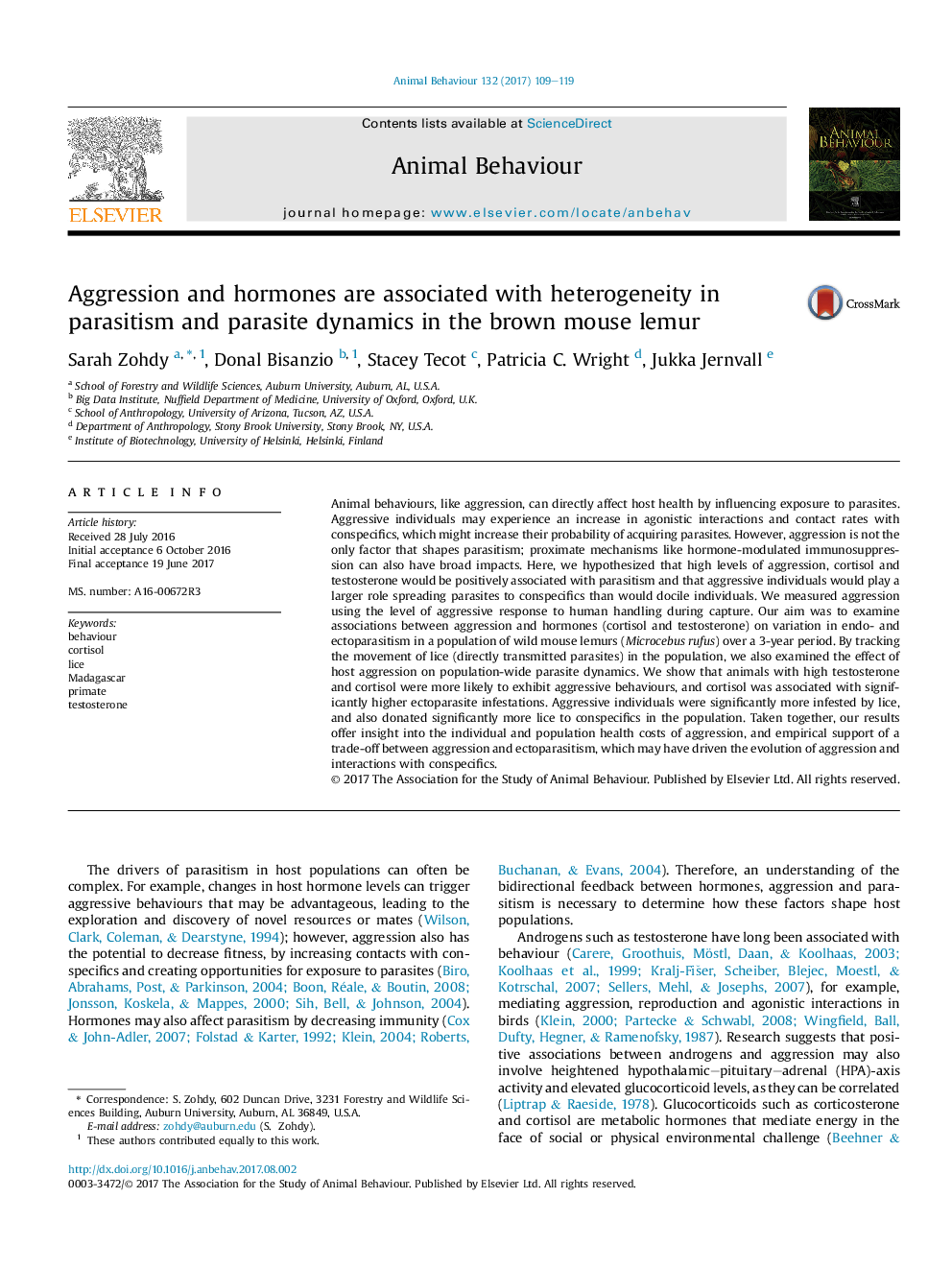ترجمه فارسی عنوان مقاله
پرخاشگری و هورمون ها با ناهمگونی در انگل شناسی و پویایی انگل در لمور قهوه ای
عنوان انگلیسی
Aggression and hormones are associated with heterogeneity in parasitism and parasite dynamics in the brown mouse lemur
| کد مقاله | سال انتشار | تعداد صفحات مقاله انگلیسی |
|---|---|---|
| 114379 | 2017 | 11 صفحه PDF |
منبع

Publisher : Elsevier - Science Direct (الزویر - ساینس دایرکت)
Journal : Animal Behaviour, Volume 132, October 2017, Pages 109-119
ترجمه کلمات کلیدی
رفتار - اخلاق، کورتیزول، شپش ماداگاسکار، پرایمکت، تستوسترون،
کلمات کلیدی انگلیسی
behaviour; cortisol; lice; Madagascar; primate; testosterone;

